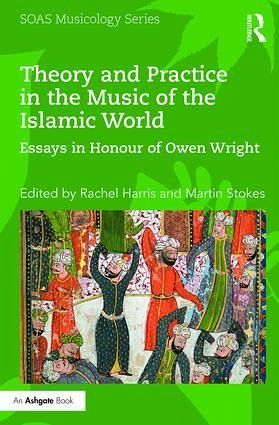Nicht lieferbar

Theory and Practice in the Music of the Islamic World
Essays in Honour of Owen Wright
Herausgeber: Stokes, Martin; Harris, Rachel
Versandkostenfrei!
Nicht lieferbar
This volume is dedicated to Owen Wright in recognition of his formative contribution to the study of music in the Islamic Middle East. Ranging across the Middle East, Central Asia and North India, it brings together historical, philological and ethnographic approaches. The contributors focus on collections of musical notation and song texts, on commercial and ethnographic recordings, on travellers' reports and descriptions of instruments, on musical institutions and other spaces of musical performance. Extending the implications of Wright's own work, it argues for an ethnomusicology of the Isl...
This volume is dedicated to Owen Wright in recognition of his formative contribution to the study of music in the Islamic Middle East. Ranging across the Middle East, Central Asia and North India, it brings together historical, philological and ethnographic approaches. The contributors focus on collections of musical notation and song texts, on commercial and ethnographic recordings, on travellers' reports and descriptions of instruments, on musical institutions and other spaces of musical performance. Extending the implications of Wright's own work, it argues for an ethnomusicology of the Islamic Middle East in which past and present, text and performance are systematically in dialogue.



